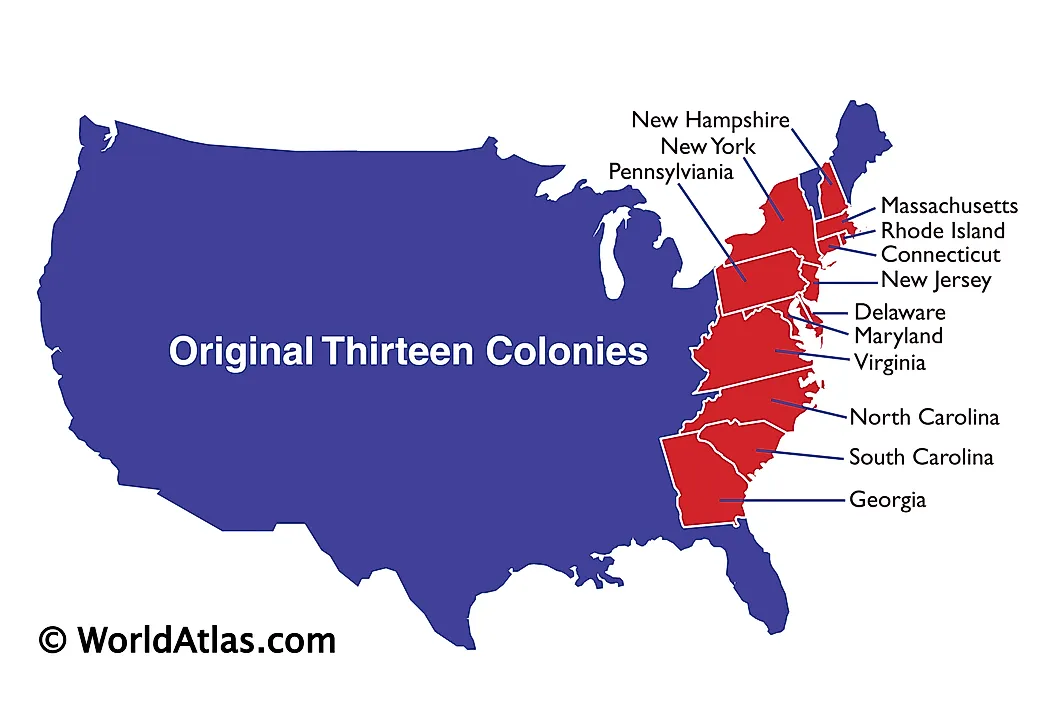The American War of Independence - PART 1
Introduction
The American Revolutionary War, also known as The American War of Independence or The American Revolution (1775–83), is a rebellion that led 13 of Britain's North American colonies to political independence and formed the United States. The war followed the expansion of alienation for more than a decade between the British Crown and its large and influential segment of the North American colony. Until early 1778, the conflict was a civil war within the British Empire, but then when France (1778) and Spain (1779) joined the colony against Britain, it became an international war. From the beginning, naval power was extremely important in deciding the course of the war. The Navy provided flexibility to British strategy, offsetting a relatively small number of troops sent to the United States and ultimately enabling the French to help the US bring about the final British surrender at Yorktown.
Colonies of the European Powers
The European Powers, The Portuguese and the Spanish were the pioneers in geographical explorations and the founding of colonies and the creation of colonies. The British were far behind in their colonization efforts. Britain made a theoretical claim to mainland North America in connection with the voyage of John Cabot (1497) off Nova Scotia. However, in the 16th century there was no means or will to substantiate this claim. Jamestown was the first British colony in the United States (1607). The Mayflower ship brought a group of Puritans from Plymouth, England to the United States in 1620. Another Puritan group, led by John Winthrop, established the Massachusetts Bay Colony. The Dutch founded a city and called it New Amsterdam. The English later changed their name to New York. There were also Germans, Danes and French. By the end of the 18th century, there were 13 colonies on the east coast, all under British control. The 13 colonies (from north to south) were Rhode Island, New Hampshire, Massachusetts, Connecticut, New York, New Jersey, Pennsylvania, Delaware, Maryland, Virginia, North Carolina, South Carolina, and Georgia. By 1775, the population of the 13 colonies had steadily increased to nearly 3 million, one-third of Britain's population.
Rise of Taxation
Each colony had a governor, and the parliament ruled his power. Therefore, initially there was no conflict between the interests of Britain and the United States. The King of England and many landowners of England had great economic interests in these colonies. The Seven Years' War of 1756-63 between Britain and France focused on colonial rule, especially in North America. Britain defeated France and dominated Canada. However, the war caused great cost, a 60 million Pound cost to the British. The British ministers suggested that American settlers should pay part of the cost of the war. As a result, many taxes were levied on the settlers. It should be noted that Americans were not represented in the British Parliament. The most important tax laws were The Sugar Act, The Currency Act, The Stamp Act, and some Townshend Acts.
The Sugar Act
The Sugar Act, aka The Plantation Act or Revenue Act, (1764), in U.S. colonial history, is British tax legislation aimed at ending the trade of sugar and molasses from the French and Dutch, providing increased revenues to The British Empire.
The Currency Act
To protect British merchants and creditors from depreciated colonial currency, The Currency Act (1764) regulated currency, abolishing the colonies' paper currency and replacing them with Gold and Silver coins.
The Stamp Act
The Britain introduced a extremely controversial Stamp Act under King George III. It imposed a tax on all papers and official documents in the American colonies, though not in England.
Townshend Acts
The Townshend Acts named after British Finance Minister "Charles Townshend" were a series of measures, passed by the British Parliament in 1767, that taxed goods imported to the American colonies. But American colonists, who had no representation in Parliament, saw the Acts as an abuse of power.





Brilliantly written!
ReplyDelete